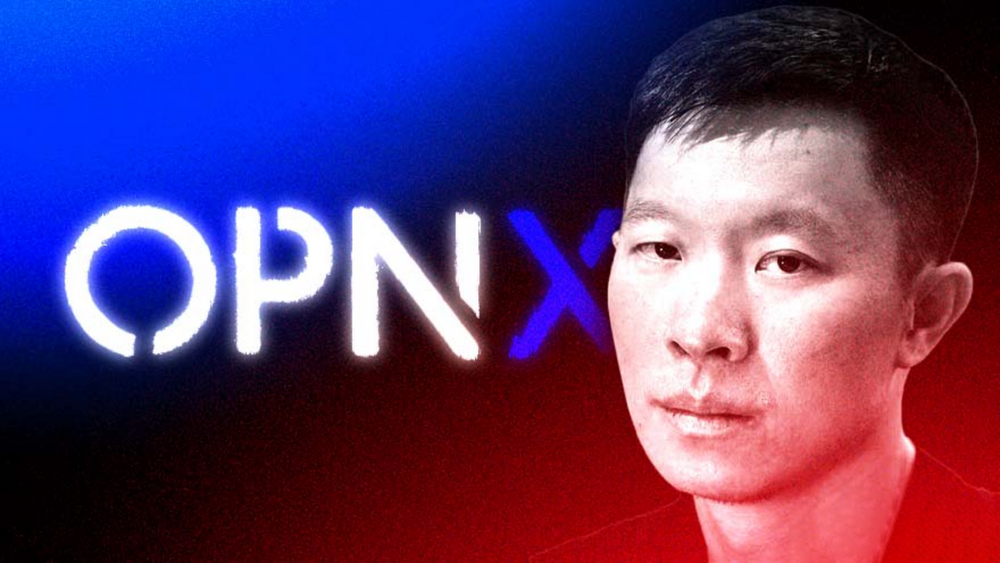The Rule of Law Weekend: At least three basic problems must be solved for digital currency to replace banknotes and become the standard of circulation
Source: Rule of Law Weekend (https://epaper.legalweekly.cn/Html/2020-01-09/1388.html)
Author: Wangjia Guo
Behind the digital currency, in addition to the encryption technology as a supporting system, there are also application ecosystem or social issues, including rights issues such as issuance rights and access rights, such as whether these rights are open or to what extent.

- Anchor determines success or failure? Comparison of the digital currencies of the four central banks
- Interpreting Blockchain: Efficiency and Cost
- Nothing is more important than scene innovation
In a nutshell, blockchain is neither encryption technology nor digital currency, but an electronic transaction information publicity system that uses encryption technology as a security guarantee. Its function is similar to a notarized information publicity board. Facing the virtual products supported by blockchain technology, people only need to enter a string of verification codes to reverse verify or judge the authenticity of the information disclosed, or to have reason to believe that it is genuine. It can be said that this is an inevitable need for social life in the era of digital technology popularization.
However, reality is not as ideal as the purely technical world. At least the two premise assumptions of the ideal model of the blockchain, that is, the full opening of the link right and the rational person as the main body of the consensus mechanism to determine the development direction of the chain, may not be established or may be broken by realistic factors. This means that the blockchain is not necessarily decentralized, and the "majority" consensus mechanism may fail.
The ideal model is affected by multiple realistic factors
The so-called decentralization is based on the consensus mechanism under the principles of distributed accounting, open link right and majority decision. The development and application of blockchain technology has a decentralized development path, but this is not the only path. The reason is: those prerequisites set by the "decentralization" road, for example, in the process of the block becoming a "chain", it is necessary to adopt distributed accounting, open link rights, equality of rights of network entities, and jointly determine the development of the chain. The "right way" is a theoretical assumption under the ideal state, that is, the state of pure technology.
In my opinion, this is not an inevitable or the only choice. In reality, there are other alternative chaining models. In addition, the "open right of link" in the ideal model, and the "consensus mechanism" of the democratic and co-determination of the network subject are also a theoretical assumption. At least from a purely logical perspective, this theoretical assumption is logically falsifiable. Because the first person to package on the blockchain chain is "centralized", rather than being created through openness, competition, and democracy in the ideal model.
Similarly, from the perspective of practical operations, at what level and level is open, what is the willingness or source of power of traders in the open layer to package and upload the link, to whom and how to implement the responsibility for security control after packaging and linking There are still many problems in place. These problems are obviously not solved by pure encryption or coding technology. Therefore, other external mechanisms besides pure technology are needed to control and correct them to make up for the shortcomings in the ideal model.
Secondly, the ideal model believes that bookkeeping subjects with equal rights can form a consensus mechanism under the majority rule. I believe that this is actually a hypothesis. There are many practical limitations to this assumption, and even more deadly, the mechanism can fail in certain situations.
For example, in terms of realistic constraints, taking digital currency, one of the blockchain application scenarios, as an example, in the digital currency architecture system, equality of power levels is almost a "delusion". Because coinage is sovereign, it is impossible to delegate power to the public.
In addition, under the ideal model of digital currency, the bookkeeping power of each bookkeeping subject comes from the reward mechanism (such as "mining" in the Bitcoin system). In real life, digital currency will be legal tender, and fiat currency cannot be downgraded to rewards for bookkeeping behaviors and obtained free of charge. Without prizes, there is no motivation for bookkeeping and linking, which makes the assumption of active packaging, competing links, and open linking rights in the ideal model empty talk.
Strong computing power is the decisive factor for the development of blockchain
In front of the principle of superiority in computing power, the "majority" principle in the ideal model of the blockchain will also fail instantly. With the rapid development of computer software and hardware technology, in addition to algorithms becoming important, computing power is also a very crucial determining factor.
We have reason to believe that the decisive factor for the development of blockchain is super-powerful computing power, not human tactics. In the face of the super-powerful Galaxy computers, quantum computers and other super-powerful machines and national forces being developed in many countries, the distributed accountant Xiaomi plus rifle's guerrilla computing power ("mining" capabilities) and these Compared to super machines, it is obviously trivial.
Then, the super-powerful computing power may "monopolize" the right to link and the right to decide the development of the chain, making the consensus mechanism of the affirmative bookkeeping subject assumed in the ideal model an illusory bubble that can never be fulfilled.
In a certain sense, the blockchain is not the encryption technology itself, nor is it the digital currency itself. It is only an encrypted full-flow publicity system for transaction information. Its function is to form a trust relationship between traders. Because of this, blockchain technology can be applied to many fields, rather than simply applied to digital currencies. This is why there are many “Blockchain +” models today, because they can play the role of information disclosure in various digital worlds, and promote mutual trust between traders.
Of course, the "trader" here is not just a businessman, but refers to every player in the entire transaction circulation link. Corresponding to real life, taking electronic signatures in judicial trials as an example, the information publicized after such encryption technology processing, the judge enters the verification password and successfully checks the value before he can believe what he sees (or the party submitted The electronic signature in the electronic evidence is "genuine", not a fake PS picture.
The theoretical hypothesis or nightmare of the "majority" principle
At present, when people talk about blockchain, it is easy to think of digital currency, especially bitcoin. This may be because Bitcoin is the first blockchain application example shown by blockchain technology workers to the world.
The author believes that if digital currency is to replace banknotes and become the standard of circulation, it must solve at least the following three basic problems: that is, to achieve fidelity with encryption technology, to maintain credit with national sovereignty, and to maintain value with national law. Some people believe that blockchain technology is sufficient to achieve fidelity, so the other two requirements need not be considered at all. However, the author believes that this is the wishful thinking of technical absolutism, and the previous analysis and criticism of the ideal model also illustrates this. This is also one of the reasons why the United States does not agree with the release of Facebook's digital currency, because the Federal Reserve is not willing to give coinage rights to an enterprise.
Blockchain, as the whole-process information disclosure system of transactions processed by encryption technology, is the underlying core technology of digital currency, but this technology is not enough to solve all the problems that a digital commodity can be upgraded to the currency of a country. Similarly, people's fascination with Bitcoin also has the ideological shadow of technical omnipotence.
The author does not fully agree with the premise of this technical omnipotentism. On the contrary, behind the digital currency, in addition to the encryption technology as a supporting system, there are also application ecosystem or social issues, including the issue of rights such as the right to issue and link, such as whether these powers are open or to what extent Open etc.
These problems can become problems because blockchain technology does not necessarily exclude centralization. And in the face of the principle of superiority in computing power, the theoretical assumption of the "majority decision" principle has become a paradox and nightmare for technical omnipotentists.
We will continue to update Blocking; if you have any questions or suggestions, please contact us!
Was this article helpful?
93 out of 132 found this helpful
Related articles
- Philippines' "Asian cryptocurrency valley" will have its own airport
- Technical analysis: What are the differences between smart contracts on Ethereum, Bitcoin, and Bitcoin Cash?
- EU's fifth anti-money laundering directive takes effect, crypto companies' operating costs will increase
- Lava: Creating a Decentralized PoC Ecology
- Perspectives | Some Thoughts on the Blockchain World and Security After 2020
- Research shows: DeFi realised over 250% return last year
- U.S. Treasury Department uses blockchain technology to track government funding






